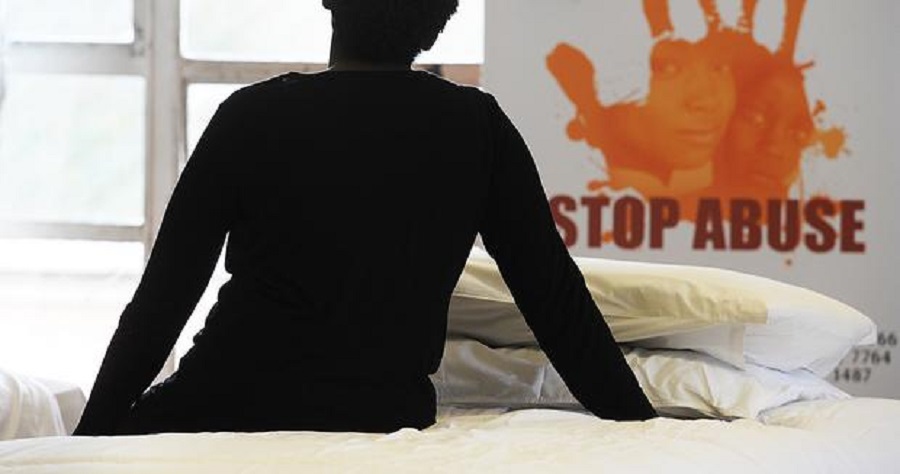#Jamaica, April 6, 2018 – Kingston – Nurses in the public health system have pledged to tackle the issue of abuse against women and children through the global campaign, Nursing Now.
The three-year campaign is being undertaken in collaboration with the International Council of Nurses (ICN) and the World Health Organization (WHO), to raise the status of nurses globally, and to maximise the contribution that nursing makes to universal health coverage, women’s empowerment and economic development.
“It has put nurses in a position to look at their mandate of caring and to look at a specific area of violence against women and children,” says Chairman of the Nursing Council of Jamaica (NCJ), Dr. Leila Dehaney.
Outlining the NCJ’s position on the initiative in an interview with JIS News at the recent launch of the Jamaica leg of the campaign, the Chairman says “this matter is very timely and most appropriate”.
Another aspect of Nursing Now seeks to empower nurses to take their place at the heart of tackling 21st Century health challenges, and to recognise and promote the profession as a key group in the health sector in countries around the world to provide healthcare for all, influence policymakers, and make important social and cultural changes.
Dr. Dehaney says as the health professionals take on the role of reducing violence in an organised form, it is important that nurses implement the plan with strategic thinking, “so that the next generation of nurses and Jamaicans can benefit”.

For Health Minister, Dr. the Hon. Christopher Tufton, the mission of Nursing Now and that of nurses is relevant.
“You saw the value that it would offer to the profession – to secure, to advance and to promote the profession,” the Minister says, while commending the nurses for joining the international campaign. “The cause that Nurses Now represents is in sync with what you represent, and can advocate for that effectively. It is about speaking with one voice to drive an agenda that enhances the profession,” Dr. Tufton adds.
The Minister says that the initiative will enable greater empowerment of nurses, and provide them with the ability and the capacity to prepare themselves to provide greater leadership as an important response to the public health challenges.
For her part, Senior Director of Nursing at the University Hospital of the West Indies, Claudette James, says the group will be forming alliances with other organisations and groups that are working with victims of gender-based violence, to share their vision of broader support for the eradication of the act.
According to the Senior Director, a cadre of equipped nurses and midwives will be trained, and they in turn will utilise their skills for the provision of education and other support to victims.
“We are trying to empower the women to protect themselves,” Mrs. James explains. She adds that nurses and midwives will be equipped with knowledge and the tools that they need “to offer counselling and to make referrals for victims to receive help, and to overcome violent settings”.
“We are in a position of power to effect change that could empower women and protect our children,” Mrs. James says, adding that the project entails training 100 nurses and midwives to deal with the issue of violence.

Meanwhile, Deputy Chief Nursing Officer in the Ministry of Health, Shirley Hibbert, says nurses are well positioned to end the violence, as they are at every level of the health system dealing with persons from all segments of the society. Noting that nurses are part of the local community and are in touch with the “top and bottom of the health system”, Miss Hibbert says they are “primarily placed to promote healthy lifestyles and community service”.
Nursing Now, with backing from the United Kingdom (UK)-based Burdett Trust for Nursing and nursing organisations across the globe, will run to the end of 2020, the 200th anniversary of Florence Nightingale’s birth, and a year when nurses will be celebrated worldwide.
Leaders of the campaign are pushing for improvement in the perception of nurses, to enhance their influence and maximise their contributions to ensure that everyone across the globe has access to health and healthcare. They are working with partners around the world to advocate for more nurses in leadership positions, to help them achieve more influence; and also help nurses access better education and training, while supporting them to share research and evidence of effective practice.
Jamaica is among five countries whose health systems are being looked at for case studies, where there will be recording and sharing of the lessons learned. The case studies are focused on countries and organisations that are making progress in prioritising nursing, in keeping with the campaign’s objectives. Areas of concentration are improvement in services, investment in training and development and support for nurse leaders, and innovation.
By: Garfield L. Angus (JIS)


 News1 week ago
News1 week ago
 Caribbean News1 week ago
Caribbean News1 week ago
 News1 week ago
News1 week ago
 News6 days ago
News6 days ago
 News6 days ago
News6 days ago
 News10 hours ago
News10 hours ago













